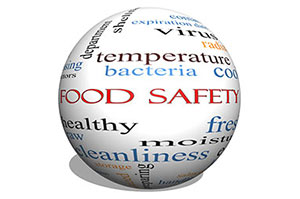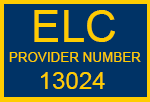Food Hygiene - Level 3 Award in Food Safety
If you are a manager and need to complete a food safety course that will allow you to manage food hygiene within your facility this course is ideal for you. This course will provide you with the learner with the skills, knowledge and understanding in ensuring compliance in food safety in a supervisory role, including the monitoring of good hygiene practices, implementing food safety management procedures and training staff to understand the procedures.
This is a regulated qualification from TQUK an awarding organisation.
Candidates will receive a workbook that must be completed prior to attending the 2 day classroom course.
The subjects below are just some of the content included on this course
- Personal hygiene
- Food poisoning and how it can affect your business
- Bacteriology
- Bacterial, non-bacterial food poisoning & foodborne infections
- Hazard analysis & HACCP
- Food contamination / prevention
- Food storage
- Temperature control
- Food preservation
- Food premises & equipment
- Cleaning & disinfection
- Pest control
- Legislative responsibilities and requirements
Who is the Food Safety Training for?
This course is designed for supervisors and managers and high risk food handling environments. Instructors who have this qualification and Level 3 Award in Education and Training Train the Trainer Level 3 or above can deliver Food Safety courses Level 2 RQF.
Course Learning Outcomes - you will be able to
1. Understand the role of the supervisor in ensuring compliance with food safety legislation
1.1 Summarise the importance of food safety management procedures.
1.2 Explain the responsibilities of employers and employees in respect of food safety legislation and procedures for compliance.
1.3 Outline how the legislation is enforced.
2. Understand the application and monitoring of good hygiene practice
2.1 Explain the importance of, and methods for, temperature control.
2.2 Explain procedures to control contamination and cross-contamination.
2.3 Justify the importance of high standards of personal hygiene.
2.4 Explain procedures for cleaning, disinfection and waste disposal.
2.5 Outline requirements relating to the design of food premises and equipment.
2.6 Describe the importance of, and methods for, pest control.
3. Understand how to implement food safety management procedures
3.1 Describe the importance to food safety of microbial, chemical, physical and allergenic hazards.
3.2 Describe methods and procedures for controlling food safety to include critical control points, critical limits and corrective actions.
3.3 Explain the requirements for monitoring and recording food safety procedures.
3.4 Describe methods for, and the importance of, evaluating food safety controls and procedures.
4. Understand the role of the supervisor in staff training
4.1 Explain the requirements for induction and on-going training of staff.
4.2 Explain the importance of effective communication of food safety procedures.





